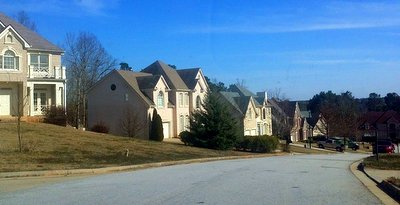
The U.S. housing market has mostly bounced back from the dark days of the Great Recession, but data from Black Knight Financial Services shows that the recovery hasn’t been even. The data spans from 2004 through 2015 and shows the recovery is delineated along income, geography and racial lines. A typical single-family home’s value has increased less than 14% between 2004 and 2015, while homes in the most expensive neighborhoods have gained 21% during the same period.
Minority neighborhoods have lagged behind the housing price recovery, with majority minority Zip codes more than twice as likely as other Zip codes to have homes now worth less than in 2004. Jumpstarted by financial speculation, subprime lending and a ‘homeownership as a surefire pathway to wealth’ mantra, home values starting escalating rapidly in the beginning of the decade with prices peaking by 2007 then falling sharply. This was the fuel to the Great Recession’s fire. Millions lost their homes to foreclosure as values dropped to the lowest in 2011, resulting in trillions of dollars of lost wealth.
When times are good, merely owning a home converts the homeowner’s paycheck into the next generation’s inheritance. This won’t apply for a home in a neighborhood where home prices are depressed. After the see-sawing home prices have stabilized, it’s now easy to evaluate the effects of the housing crisis on all communities.
We’ll examine a few stories out of suburban Atlanta’s southeastern side, where home prices are down 25%.
Zip code 30034, southern DeKalb County
In the 1990s and early 2000s, new subdivisions with large upscale homes on one-acre lots were built in southern DeKalb County, the price difference between here and northern DeKalb County was not much. Today, an identical home in southern DeKalb County might sell for half of what it would in northern DeKalb County. In southern DeKalb, home values in some Zip codes are 25% below 2004 values. Families have lost their wealth and have had their life plans turned upside down, but they continue to see neighborhoods in northern DeKalb thriving.
Wayne Early, an economic development consultant can’t explain why the difference has widened during the years of the housing boom, bust and recovery. He says the people have good jobs, are making six-figure incomes, and their homes are quality-built. He can only identify one obvious difference that makes the property values much less.
Across Atlanta’s sprawling metro area, almost 90% of predominately minority Zip codes have home values that stubbornly refuse to move higher than what they were in 2004.
In Southland, a golf course community, a five-bedroom whitewashed-brick home backing onto the golf course sold for $440,900 in 2005 but last June, it sold for only $290,000. David Sands, a retired Air Force information manager co-chair with Early on a housing committee for the South DeKalb Improvement Association, paid $269,000 for his large red-brick home in 2005. He recently tried to refinance it and was told it was worth $189,000.
These neighborhoods are not struggling because they had monumental price drops during the housing crisis; other comparable neighborhoods fell similarly, but recovered faster.
Majority minority neighborhoods tend not to attract diverse racial groups
Elora Raymond, a PhD candidate and graduate research assistant at the Federal Reserve Bank of Atlanta, has studied the relationship between race and negative equity. She found that throughout the south, particularly in metro Atlanta, the areas with lingering negative equity are in predominately minority Zip codes. When Raymond controlled for income levels and housing quality measures, race mattered. When she added controls for the severity of the subprime and foreclosure crises, race still mattered. When she controlled for how far prices dropped during the bust, she found surprisingly that race mattered more.
The next article will examine Charlotte, NC Zip code 28207, where home prices are up 33% from 2004 prices.
See Home Loan Approval for Minorities Becomes More Accessible
See New Fair Housing Rule Announced by HUD
See The Truth about Housing Inequality
See Minorities and Mortgage Approvals
Sources:
The Washington Post. America’s great housing divide: Are you a winner or loser?
Zillow Porchlight. Home Values in Black, Hispanic Neighborhoods Bouncing Back More Slowly

